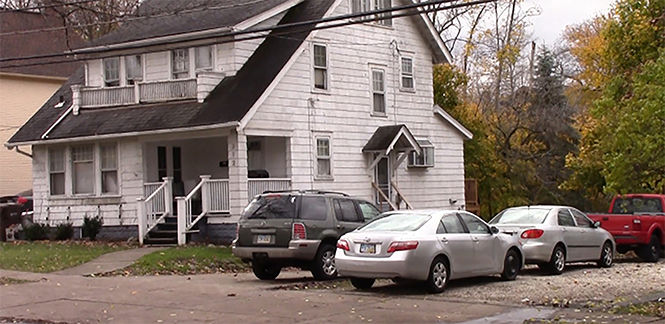Overcrowded dorms pose reoccurring issue for university
September 8, 2015
Some students are currently living in overcrowded dorm spaces until ideal space is available, due to the increase in the number of housing contracts that were accepted prior to this school year.
“Approximately 60 students began the year in transitional housing,” said David Taylor, the associate director of Residence Services. “In order to accommodate the demand, it was necessary for (Residence Services) to use transitional housing spaces (for) students that applied at, or end the near of May.”
Transitional housing spaces, which are set up in floor lounges, are in Allyn, Clark, Dunbar, Fletcher, Koonce, Lake, Manchester, Olson, Prentice, Verder and Wright halls.
“The lounges have two to four students assigned to them, which is determined by the size of the space,” said Taylor. “Lounges are typically spacious, with more space than found in a traditional room. There is no compromise in safety for students temporarily placed in transitional spaces.”
These students are not missing out on anything that they would have in a normal dorm space, as Taylor said students have cable television connections and mini-fridges.
“It is definitely nicer having having a bigger room, (and I am) pretty content staying here,” said Kira Meyers, a freshman advertising major currently living in a transitional space in Olson Hall.
While it is different for students living in transitional housing spaces, that is not necessarily the case for the Residence Hall Director of the dorm. Jeffrey Livingston, the RHD of Koonce Hall, said that the situation has not changed his role, but instead puts extra emphasis other things.
“The most important thing for me as the RHD with students living in lounge spaces is effective communication, so (the students) understand that they are still a part of the community and also understand the process of housing assignments and finding a permanent home,” Livingston said.
The overcrowding of dorms is not an unusual problem for Residence Services, so it is not surprising that a similar situation exists this year.
In 2011,the same issue was documented, with similar steps being taken this year. However, those steps are more focused on dealing with the housing issue when it arises, instead of attempting to prevent it.
“Transitional spaces are priced 25 percent below the cost of a standard double room (because the student) will need to relocate to another room as space becomes available,” Taylor said.
Students will be compensated for the time spent in the transitional housing space, similarly to what was done in 2011. As students who submitted a housing contract, but fail to show up, are cancelled, students in the transitional housing spaces will begin being placed in permanent housing.
Contact Ryan Landolph at [email protected].












